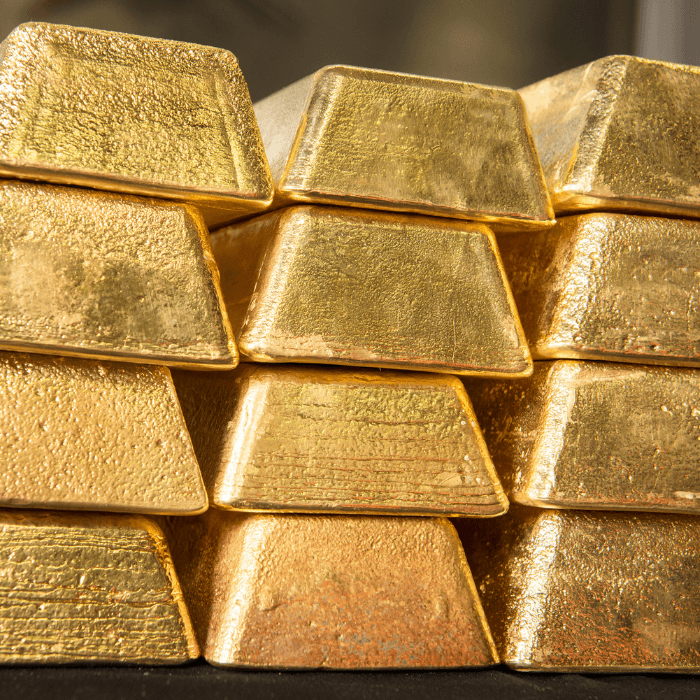All Investors Need to Know About Gold, Taxation, allowances and reliefs
The Royal Mint
Invest

The contents of this article are accurate at the time of publishing, are for general information purposes only, and do not constitute investment, legal, tax, or any other advice. Before making any investment or financial decision, you may wish to seek advice from your financial, legal, tax and/or accounting advisers.
Gold’s role as a risk management tool within a well-diversified portfolio is frequently talked about. However, with the ever-changing policy landscape, it’s worth noting that some forms of gold investment also carry certain tax benefits and efficiency.
In the domain of investment, gold has long been revered as a store of value and a hedge against economic uncertainties. For United Kingdom investors, the appeal of physical gold, including bullion bars, Sovereign and Britannia coins, goes beyond the inherent stability of the precious metal. The UK tax benefits associated with investing in bullion coins make them a compelling choice for those seeking to diversify their portfolios whilst enjoying certain advantages in taxation.
Capital Gains Tax (CGT)
The Capital Gains Tax (CGT) regime has been under review recently, with some major changes being implemented affecting investors, namely, the reduction in the CGT annual exemption for each tax year.
To recap, there have been two changes to the CGT regime which have the potential to increase one’s CGT liability. Namely, a decrease in the annual exemption which determines the amount an individual can realise as a capital gain without being subject to CGT (Capital Gains Tax rates and allowances - GOV.UK) and an increase in the tax rate charged when one exceeds this annual exemption.
The annual (CGT) exemption for the current tax year is £3,000 (£6,000: 2023/24, £12,300 2022/23). The applicable CGT liability, should one realise gains above and beyond this allowance, is:
18% - Basic rate tax payers (10% prior to October 2024 budget)
24% - Higher rate tax payers (20% prior to October 2024 budget)
What is Capital Gains Tax?
CGT is the tax you pay on the profit or gain you’ve made on a taxable asset when it is sold. It applies to assets that you own, such as bullion, property or shares. CGT differs from Income Tax in that only the gain made on the sale of the asset is taxable. For example, if you bought a gold bar for £5,000 and sold it for £10,000, the CGT would apply to the £5,000 profit you made from the sale (excluding any trade costs and annual exemption). CGT is currently charged at a rate between 18–24%, depending on your tax band and the taxable asset in question. However, you don’t have to pay CGT if your total gains within a tax year fall below the CGT annual exemption of £3,000 (2024/25).* It is the responsibility of the individual investor to declare to HMRC any CGT payable.
Gold Bullion Coins and Capital Gains Tax
Bullion coins from The Royal Mint are exempt from CGT for UK residents due to their status as legal tender British currency. In fact, all gold, silver and platinum bullion coins produced by The Royal Mint are classed as CGT-free investments; this includes gold and silver Britannia coins, Sovereigns and the popular Queen’s Beasts range. Due to their CGT exemption, investors can make an unlimited tax-free profit on all bullion coins produced by The Royal Mint. This contrasts with the vast majority of other investments and assets, including paintings, antiques, most shares and any property other than someone’s main residence, where the profits on the sale are liable for CGT.
What is Value Added Tax (VAT)?
VAT is the tax you pay on something you buy, which usually adds 20% to the price, although there are also special 5% and 0% VAT rates.
All gold bullion bars and coins sold by The Royal Mint, including The Sovereign and Britannia ranges, is VAT free for non-VAT registered private individuals.
Silver and platinum bullion coins, regardless of the country of issue, are currently subject to VAT at the current rate of 20%. However, for those investing in the DigiSilver or DigiPlatinum products, these are now fully free from any VAT charge. Please visit our Digital Silver page to learn more about our digital investments.
Pensions: Gold for Pensions
At The Royal Mint, we facilitate the purchase of gold bullion bars within SIPP- and SSAS-based pensions via our Gold for Pensions offering. The service is offered via third party pension companies who ensure the proper administration of the pension investments.
Investing in bullion via your pension has two major benefits:
- Pension tax relief
You can benefit from tax relief on private pension contributions worth up to 100% of your annual earnings. This means contribution will be ‘grossed up’; they are made out of your gross salary (before income tax)
This allows investors greater purchasing power when considering their investment.
2. Pension funds grow tax free
Any income and gains within a pension are free from any tax. This tax efficiency enhances the growth potential of the investment and provides the flexibility to rebalance pension fund holdings without concern for tax implications.
Conclusion
Personal bullion coin investments, and gold bar investments within a pension, can afford UK investors additional tax efficiencies, particularly when considered as part of a well-diversified portfolio, where investors may also benefit from other tax efficient structures such as an ISA.
As always, when it comes to financial and wealth planning, particularly within in the context of tax and legal structures, it if often recommended to seek professional advice.









